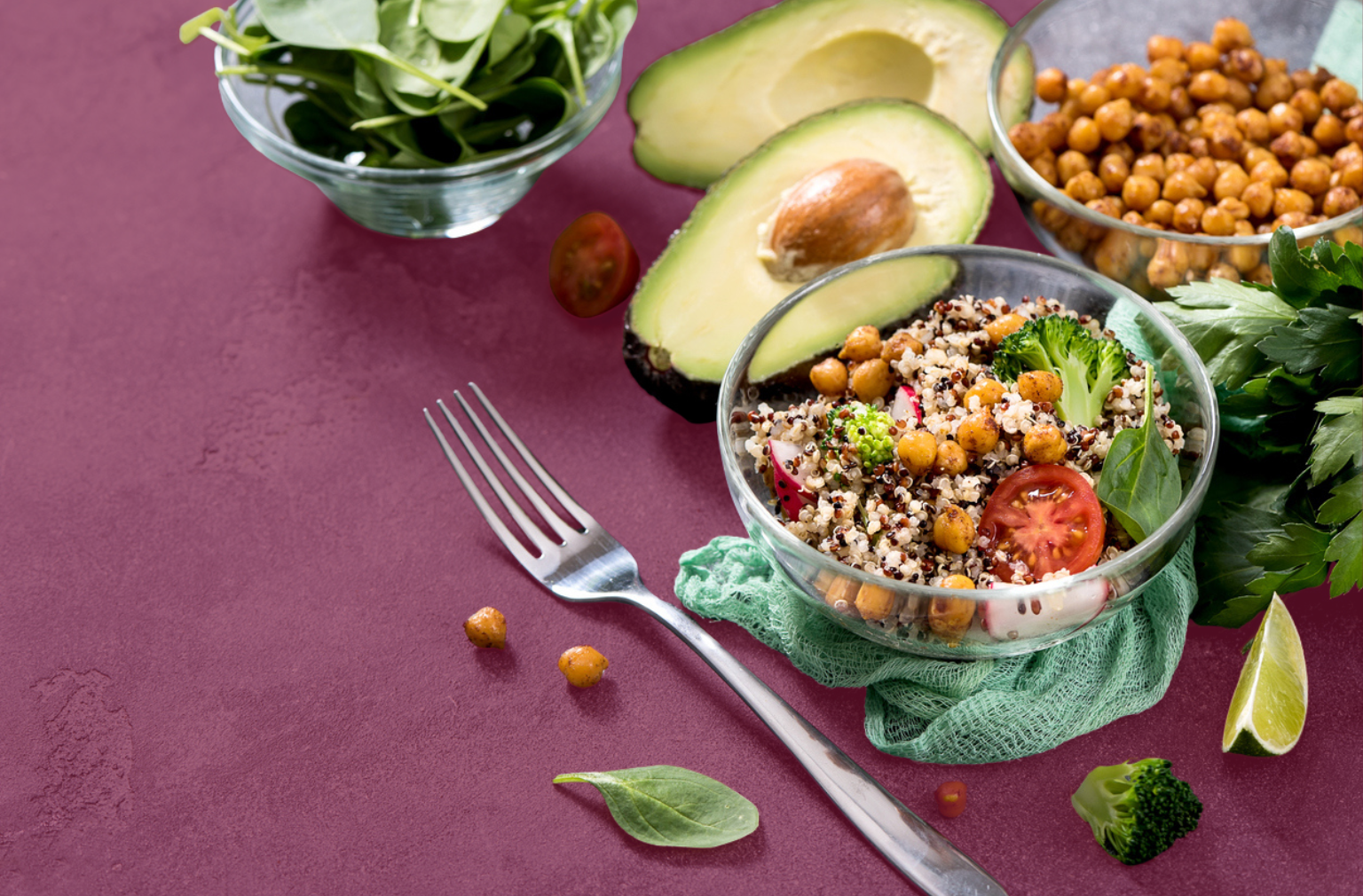Hormone-Balancing Breakfast Recipes: Start Your Day Right During Menopause
Start your day right during menopause with protein-rich, anti-inflammatory breakfast recipes that balance hormones & stabilise blood sugar.

Unpredictable energy levels, weight gain, and mood swings during perimenopause or menopause don’t have to derail your day. Strategically designed hormone-balancing breakfasts provide the foundation for stable blood sugar, sustained energy, and better symptom management throughout your menopausal journey.
Understanding Metabolic Changes
During menopause, declining estrogen levels change how your body handles food and blood sugar. Post-menopausal women have higher blood sugar levels and poorer glucose control after eating compared to younger women, making smart breakfast choices more important than ever (Bermingham et al., 2022).
The Power of Protein-Rich Mornings
Starting your day with adequate protein is crucial during menopause. Studies demonstrate that protein-rich breakfasts help control blood sugar levels throughout the entire day (Takahashi et al., 2023). This becomes even more important as declining estrogen makes it harder for your body to manage blood sugar effectively.
Essential Hormone-Supporting Strategies
Blood Sugar Stabilisation
Creating breakfasts that support stable glucose levels involves combining three key components:
- Quality protein sources: Greek yoghurt, eggs, nuts, seeds, and legumes provide essential amino acids whilst moderating blood sugar spikes
- Complex carbohydrates: Wholegrain oats, quinoa, and high-fibre options deliver sustained energy without dramatic glucose fluctuations
- Healthy fats: Avocado, nuts, seeds, and olive oil slow digestion and enhance nutrient absorption
Anti-Inflammatory Ingredients
Menopause is associated with increased inflammation, making anti-inflammatory foods especially helpful (Erdélyi et al., 2024). Key ingredients include:
- Berries: Packed with anthocyanins and vitamin C to combat cellular damage
- Nuts and seeds: Rich in omega-3 fatty acids and vitamin E for inflammation reduction
- Spices: Cinnamon helps regulate blood sugar, whilst turmeric provides powerful anti-inflammatory compounds
Phytoestrogens for Natural Support
Phytoestrogens are plant compounds that can help compensate for declining estrogen levels. These beneficial compounds reduce hot flush frequency in menopausal women without serious side effects (Chen et al., 2015). Boost your morning phytoestrogens with:
- Soy products: Silken tofu in smoothies, soy milk in cereals
- Flaxseeds and chia seeds: Rich in lignans, perfect for sprinkling on yoghurt or blending into smoothies
- Sesame seeds: Studies show sesame consumption can support bone health in post-menopausal women (Silva et al., 2021)
Hormone-Balancing Breakfast Recipes
Mediterranean Protein Bowl
Combine Greek yoghurt with chopped walnuts, ground flaxseeds, and fresh berries. Drizzle with honey and cinnamon. Benefits: Rich in protein, omega-3s, and phytoestrogens. Prep-ahead: Prepare nuts and berries in portion containers.
Tofu Scramble with Vegetables
Sauté silken tofu with spinach, cherry tomatoes, and turmeric. Serve with wholegrain toast. Benefits: Complete protein and phytoestrogens. Prep-ahead: Pre-chop vegetables and store tofu portions.
Overnight Chia Breakfast Pudding
Mix chia seeds with unsweetened almond milk, vanilla, and cinnamon. Top with banana and almonds. Benefits: Sustained energy and anti-inflammatory compounds. Prep-ahead: Make multiple servings for the week.
Quinoa Breakfast Porridge
Cook quinoa in soy milk with cinnamon, topped with sesame seeds and fruit. Benefits: Complete protein and phytoestrogens. Prep-ahead: Batch-cook quinoa and reheat portions.
Implementation Tips
Meal Timing and Preparation
- Consistent timing: Eating breakfast at the same time daily helps regulate metabolic function
- Batch preparation: Cook quinoa, hard-boil eggs, and prepare overnight options in advance
- Portion awareness: Aim for balanced portions rather than restrictive eating
Shopping and Storage
- Prioritise organic options: Choose organic soy products and berries when possible
- Seasonal variety: Rotate fruits and vegetables to maintain nutrient diversity
Conclusion
Hormone-balancing breakfasts represent a powerful tool for managing menopausal symptoms and supporting long-term health. By emphasising protein, incorporating anti-inflammatory ingredients, and including natural phytoestrogens, you can create morning meals that work with your changing body rather than against it.
With proper planning and delicious recipes, breakfast can become a cornerstone of your menopausal wellness strategy.
How Emsee Can Help
Want support on your menopause journey? Book a free first consultation with one of our experienced doctors, naturopaths or nutritionists today by calling 1300 412 422 or fill out our online contact form.
Alternatively, answer a few questions about your health and lifestyle to get a free assessment report on your situation and discover if Emsee is the perfect match for you.
References
- Bermingham, K.M., Linenberg, I., Hall, W.L., et al. (2022). Menopause is associated with postprandial metabolism, metabolic health and lifestyle: The ZOE PREDICT study. EBioMedicine, 85, 104303.
- Chen, M.N., Lin, C.C., & Liu, C.F. (2015). Efficacy of phytoestrogens for menopausal symptoms: a meta-analysis and systematic review. Climacteric, 18(2), 260-269.
- Erdélyi, A., Pálfi, E., Tűű, L., et al. (2024). The Importance of Nutrition in Menopause and Perimenopause, A Review. Nutrients, 16(1), 27.
- Silva, T.R., Oppermann, K., Reis, F.M., & Spritzer, P.M. (2021). Nutrition in Menopausal Women: A Narrative Review. Nutrients, 13(7), 2149.
- Takahashi, M., Ozaki, M., Tsuboyama-Kasaoka, N., et al. (2023). Effect of a High Protein Diet at Breakfast on Postprandial Glucose Level at Dinner Time in Healthy Adults. Nutrients, 15(2), 264.
This article is intended for informational purposes only and does not replace professional medical advice. Please consult with a healthcare provider for any specific symptoms or issues you might be experiencing.












